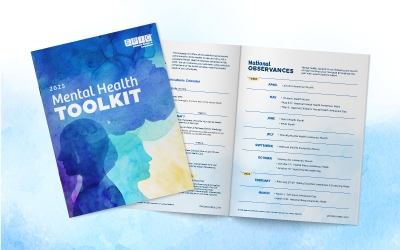Medicare rules are complex and daunting to individuals approaching eligibility age. As employees continue to work past the Medicare-eligible age more frequently, they will need guidance from you to understand their choices and make educated decisions. Your support in facilitating comprehension and complete and accurate enrollments will help them avoid potential future penalties. It’s vital for your employees to know they have somewhere to turn for help.
Viewpoints from Hannah Swenson
When Should You Begin Communicating?
Start the conversation with your employees long before they become Medicare-eligible. Generally, they’ll be able to enroll during their seven-month Initial Enrollment Period, which includes the three months before and the three months after the month of their 65th birthday.
What Should Your Medicare-Eligible Employees Know?
Although an employee may become eligible for Medicare, they can opt to remain on their current health plans. But if an employee chooses to stay on their current employer-provided insurance while Medicare-eligible – particularly an employee considering a Health Savings Account (HSA) option – they must know the rules.
It’s important to communicate the “parts” of Medicare (Part A, Part B, Part C, Part D), supplemental plans (a.k.a Medigap plans), eligibility, enrollment deadlines, possible penalties, HSA rules, and the relationship between the employer plan and Medicare benefits.
- Publications to share with employees from the Centers for Medicare & Medicaid Services (CMS) are available to help address the complex conversations surrounding Medicare
- You can find additional information on eligibility criteria, how to enroll, and what parts of Medicare one should participate in within the CMS article “Top 5 things you need to know about Medicare Enrollment”
How Do You Communicate?
Emails and other electronic communications are effective ways to reach your audience. Consider sending Medicare enrollment facts, tips, and important contact information multiple times before they begin to age into Medicare eligibility.
Direct mail is another option. Consider sending an announcement mailer, a deadline mailer, and a reminder mailer to your eligible employees. Take into consideration high-volume times of the year or other occurrences that may require more lead time for mailings – for example, election years like 2020.
Lending support and guidance through your communications is necessary for building trust with your employees and providing them with accurate information.
The EPIC Employee Benefits team will hold two live “Medicare 101” webinars this month covering the many significant changes that took place to the rules in 2020, and experts will be ready to answer your questions. We encourage individuals and human resources teams to attend!
Check out more of our EPIC Resources:
Visit the EPIC coronavirus update center for COVID-19 information
Sign up for EPIC Newsletters in one convenient location
See results from our In It Together pulse surveys on our COVID-19 strategic collaboration and idea-sharing forum
EPIC offers these opinions for general information only. EPIC does not intend this material to be, nor may any person receiving this information construe or rely on this material as, tax or legal advice. The matters addressed in this article and any related discussions or correspondence should be reviewed and discussed with legal counsel prior to acting or relying on these materials.
Related Content
Products
Employee Benefits Consulting
Our dedicated benefits team is focused on delivering better outcomes – to both your benefits program and ...
Products
Communications & Engagement
Our Communications & Engagement team develops effective campaigns that enhance workforce awareness and ...
Products
Actuarial
Our Actuarial Team provides guidance on employee benefits and health and welfare programs to help meet ...



